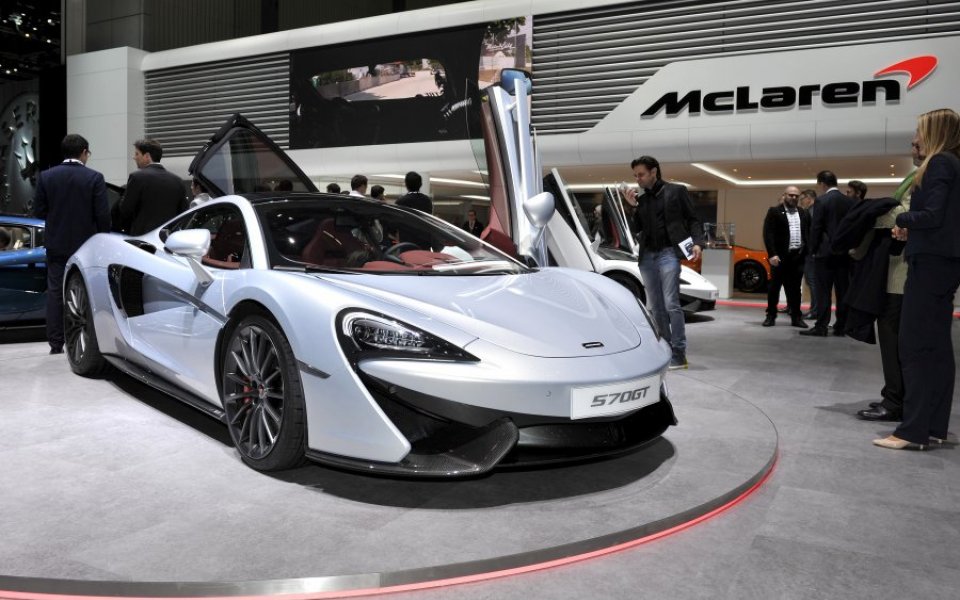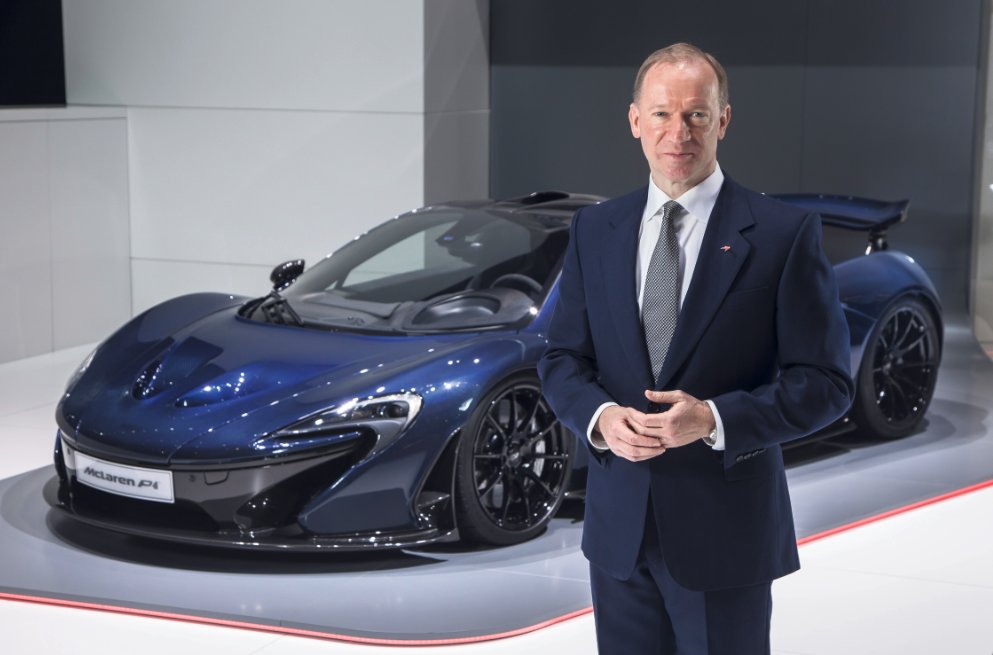McLaren chief executive Mike Flewitt: There is no way we will ever make an SUV

As the automotive world’s great and good descended on Geneva for its annual motor show this week, one topic was being discussed: SUVs. After Porsche launched its mammoth Cayenne range in 2012, this year Maserati followed suit, with the $72,000 Levante. Even Ferrari came over all practical, with the launch of its four-seater GTC4 Lusso.
But Mike Flewitt, the boss of British rival McLaren, insists despite plans to invest £1bn into the development of 15 new models over the next six years, none of those will be an SUV.
“We are a sports car manufacturer,” he says.
“We make the best drivers’ cars in the world. I’m not going to expand us into categories that we don’t have history or brand with, and we don’t have a customer base for.
“We’re not interested in being an also-ran: when we develop a product, we develop a product that’s consistent with our brand, we develop a product where we can produce the best drivers’ car, the most compelling proposition in the market we’re going into, and one that we’ll make money out of. They’re the three drivers – and an SUV doesn’t tick any of those boxes at this stage.” That’s that cleared up, then.
But the company – which has made its name as a brand aimed at enthusiasts – is working on some features to expand its customer base from that core group of petrolheads.

Flewitt: "I'm not going to expand into categories we don't have history with"
As he unveils its new 570GT – which, with plush leather interiors and a boot bigger than the Ford Fiesta, is aimed at broadening its audience – Flewitt says at least 50 per cent of cars made by the company will be hybrids by 2022.
Later, in a swish conference room on McLaren’s new, expanded stand at the show, Flewitt points out it is this focus on the driving experience which may have stood McLaren in good stead in recent years. McLaren’s engineers hand-made, painted and assembled 1,649 cars at its Woking Technology Centre in 2014 – by 2017, it aims to have more than doubled that, to 4,000.
The company, which made its first road car in 2010, posted its first operating profit, of £12.4m in 2013. In 2014, that almost doubled, to £20.8m.
Its strength is particularly notable in a period which has been difficult for other British luxury brands, whose reliance on Asian economies has dented their performance in recent years.
“We haven’t allowed ourselves to become dependent on any particular market,” says Flewitt.
“We've never over-exposed to China. The fact China has softened in the last 12-18 months, it's slowed the rate of growth for us – but we haven't fallen back.” Asia, the US and Europe each provide “not far off” a third of sales, he adds.
But while nerd-level tweaks to existing models (a glovebox here, a vanity mirror there) may be McLaren’s bread and butter, the company may make concessions with bigger changes to the technology behind the cars: it is investigating autonomous features, he says
“What we could see a future of is developing of an autonomous capability into the car so certain journeys and certain environments the car would effectively control itself – but the driver would take back control if they wanted to,” he says.
No driverless car, then? “I think a driverless McLaren sounds a bit sad.”